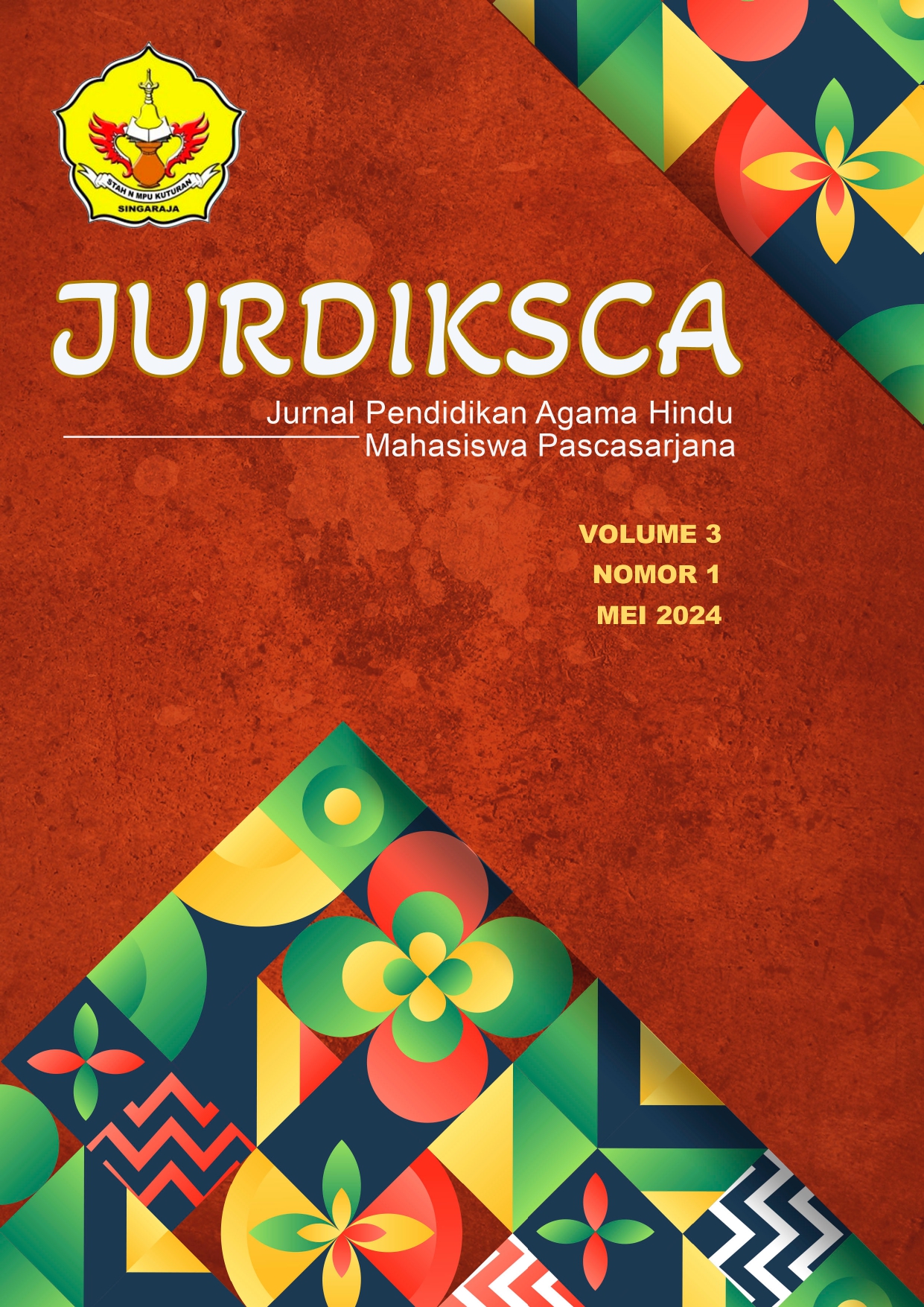PEMBELAJARAN KARAKTER MELALUI SATUA MEN TIWAS DAN MEN SUGIH DALAM KONTEKS PENDIDIKAN AGAMA HINDU
Abstract
ABSTRACT
Character education plays a crucial role in shaping individuals with integrity, morality, and responsibility. In the context of Hindu religious education, character formation aims not only to cultivate religiously observant individuals but also to instill universal values such as dharma (duty), ahimsa (non-violence), and satya (honesty). These principles align with Indonesia's national education goals, which seek to develop students into pious, virtuous, and noble individuals.
Balinese folktales (satua), as part of local wisdom, serve as effective media for character education by internalizing moral and spiritual values. The story of Men Tiwis and Men Sugih presents a rich moral narrative contrasting greed and humility. Through this tale, learners can reflect on ethical dilemmas and values such as honesty, compassion, and perseverance. This study examines how folktales function as pedagogical tools within Hindu religious education, emphasizing experiential learning and storytelling as effective methods for character formation.
Using qualitative analysis, this research explores the educational implications of satua in shaping students' moral consciousness. Findings suggest that integrating folktales into Hindu education enhances moral reasoning, fosters ethical awareness, and strengthens cultural identity. By contextualizing traditional stories within contemporary education, this study highlights the relevance of local narratives in character-building efforts, reinforcing Hindu philosophical teachings through culturally embedded storytelling methods.
Keywords: Character education, Hindu religious education, Balinese folktales, moral values, pedagogy.

